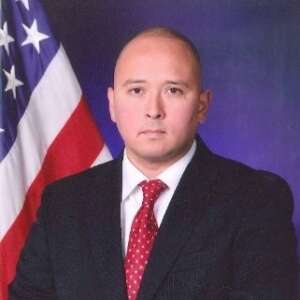Exclusive
Education, DHS among agencies seeking new IT leaders
Federal technology leaders from DISA, Army PEO-EIS and CMS are heading for new jobs in the private and public sectors.
The exodus of federal technology leaders seemed to have started a bit later in 2024 than usual. But March seems to be the “go” date for several officials.
From the Education Department to the Homeland Security Department to the Air Force to the Defense Information Systems Agency (DISA), federal leaders are retiring or heading to new opportunities in the private sector.
Starting with the Education Department, Luis Lopez, the chief information officer since December 2022, is leaving on March 22 for a job with INOVA Healthcare.
An Education Department spokesman confirmed Lopez is leaving for the private sector.
“We are preparing for a smooth transition by posting the position before he departs,” the spokesman said.
It’s unclear who will be acting CIO when Lopez leaves. Education already put out the job announcement to hire a new CIO. Applications are due by March 14 so only a two-week opening.
Federal News Network has learned Lopez will be vice president of IT operations for Inova Health Care Services.
Lopez has worked in federal service since 2008 and been with Education since 2017.

In his short time as CIO, Lopez said in a recent interview that he set up a customer advisory council last summer to help explain to non-IT executives why the 2014 law matters to them and it’s more than just a technology priority. He also led the effort to consolidate and standardize the number of video teleconferencing and collaboration tools used by Education Department employees.
Along with his work at Education, Lopez also worked at the Defense Health Agency and the Walter Reed National Medical Center.
Joining Lopez in heading to the private sector are two other technology leaders.
Federal News Network has confirmed Drew Malloy, the technical director for DISA’s Cyber Development Directorate, and Robert Wood, the chief information security officer at the Centers for Medicare and Medicaid Services, also are leaving for new positions outside of government.
Malloy, who has been with DISA for 14 years and served in government since 2003, will join a small systems integrator.
Malloy has led DISA’s cyber directorate since 2020 where he oversaw the agency’s portfolio of cybersecurity capabilities, including identity and access management, the Joint Regional Security Stacks, cybersecurity situational awareness and zero trust.
He wrote on LinkedIn that he also “developed the modernization strategy for our network and security architecture in accordance with zero trust principles resulting in Project Thunderdome for the DoD enterprise.”
It’s unclear when Malloy’s last day will be or who will replace him even on an acting basis.
In addition to running the cyber directorate, Malloy ran DISA’s services development directorate and was the chief engineer for the Cyber Situational Awareness and Analytics Division.
He also worked at Naval Research Laboratory before coming to DISA.
CMS CISO Wood taking new role
As for Wood, who has been CMS CISO since November 2020, he will join a new venture with Sidekick Security, while also continuing to invest in and grow the non-profit Soft Side of Cyber.
Federal News Network has learned that CMS deputy CISO Keith Busby will be stepping up to lead the program until a permanent CISO is hired.
During his time at CMS, Wood focused on improving the culture at CMS around cybersecurity, building a security data lake to break down silos and advancing the technology strategy through cyber enablement.
Before joining CMS in 2020, Wood spent most of his career in the private sector working in cybersecurity positions with Cigital, Simon Data and N95.
Retirements at DHS, Air Force
Two other federal technology leaders decided it was time to call it a career.
Ken Bible, the Department of Homeland Security’s chief information security officer, and Eileen Vidrine, the Air Force’s chief data and artificial intelligence officer, have submitted their retirement papers.
Bible said his last day will be March 29 and has no firm plans for his post-federal life.
“I am looking forward to taking some time to enjoy my home in Charleston, S.C. and perhaps engage in helping in both the education arena as well as helping at the state and regional policy levels in the future,” Bible said in an email to Federal News Network.
He has been DHS CISO since January 2021 and worked in government for almost 39 years. Bible, who received a 2023 Presidential Rank Award, started his career in 1985 at the former Charleston Naval Shipyard, where he rose to be a nuclear qualified engineering supervisor for three engineering branches.
During his time at DHS, Bible launched a pathfinder last summer to begin evaluating existing contractors with cyber hygiene clauses in their contracts and focused on addressing broader supply chain risks through a strategy.
Before coming to DHS, Bible served under the headquarters Marine Corps Deputy Commandant for Information as the assistant director for the information command, control, communications and computers division (IC4). He also served as the Marine Corps’ deputy CIO and CISO. Additionally, he worked at the Space and Naval Warfare Systems Command (SPAWAR) for almost two decades.
Vidrine is retiring on March 31 after 38 years of federal service.

She has been the Air Force chief data officer since 2018 and CDO/CAIO since January 2023 when she returned to the service after a one-year detail serving as the senior strategic advisor for data to the Federal Chief Information Officer in the Office of Management and Budget.
Last March, Vidrine told Federal News Network that her new title reflects the central role data has in getting AI projects off the ground.
Vidrine said AI readiness for the department comes down to establishing a baseline set of data and AI skills for airmen and guardians, as well as making sure they have access to the digital infrastructure and tools needed to advance breakthroughs in AI research.
Vidrine began her government career in 1986 as an enlisted member of the Army where she received her commission in 1987 through the U.S. Army Officer Candidate School Program as an Army transportation officer.
From 2006 to 2012, Vidrine served in various positions of leadership at the Office of the Director of National Intelligence culminating as the chief of staff for the Assistant Director of National Intelligence for Human Capital.
Army PEO-EIS leader moving to new agency
Finally, one federal executive who isn’t leaving federal service, but is on the move to a new role.
Rob Schadey, the acting deputy program executive officer for the Army’s PEO-Enterprise Information Systems (PEO-EIS), is joining the Defense Counterintelligence and Service Agency (DCSA) to be the program manager of the National Background Investigation Services.
Federal News Network has learned Schadey’s last day will be in March and it’s unclear who will take over for him even in an acting role.
Before stepping into the acting deputy PEO-EIS role in January, Schadey served as the assistant program executive officer and as the director of the business mission area, both at PEO-EIS.
As the program manager for NBIS, Schadey will have to continue to modernize the systems that help federal employees obtain security clearances.
OMB recently approved the Personnel Vetting Questionnaire (PVQ) in November, according to the third quarterly update on the “Trusted Workforce 2.0” initiative from the Performance Accountability Council. The questionnaire consolidates the SF-86, “Questionnaire for National Security,” along with several other vetting questionnaires used for federal jobs, including public trust and non-sensitive positions.
DCSA is now working on plans to integrate the PVQ into the new “eApp” web portal for background investigation applications as part of its NBIS.
Copyright © 2024 Federal News Network. All rights reserved. This website is not intended for users located within the European Economic Area.
Jason Miller is executive editor of Federal News Network and directs news coverage on the people, policy and programs of the federal government.
Follow @jmillerWFED







